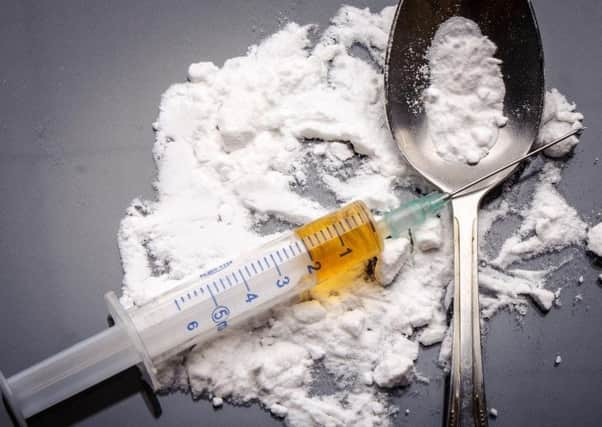Kevan Christie: What can Scotland learn from Europe about how to prevent drug deaths?


To recap, the total rose by 23 per cent from 706 in 2015 to 867 in 2016 with more deaths per head of population than any other EU country and two-and-a-half times as many as the UK as a whole.
This begs the question: what is the rest of Europe doing right that we are either ignoring or can’t seem to get to grips with?
Advertisement
Hide AdAdvertisement
Hide AdAccording to the Scottish Drugs Forum, other countries have achieved a reduction in overdose deaths by ensuring that people are appropriately retained in high-quality treatment and they are urging us to adopt the same measures.
There has been an ongoing debate around the issue in Scotland but a review of the international evidence points clearly that in terms of reducing drug-related deaths, we need to ensure people are in treatment and not being locked up.
Portugal has been held up as a shining beacon where a modern decriminalised drugs policy came into effect over 15 years ago and saw drug deaths decrease significantly from approximately 80 in 2001, to just 16 in 2012.
While it is no longer a criminal offence to possess drugs for personal use in Portugal, it is still considered an administrative violation, punishable by penalties such as fines or community service.
People who are dependent on drugs are encouraged to seek treatment, but are rarely sanctioned if they choose not to do so. The Portuguese have complemented their policy by allocating greater resources across the drugs field, expanding and improving prevention, treatment, harm reduction and social reintegration programmes.
The introduction of these measures coincided with an expansion of the Portuguese welfare state, which included a guaranteed minimum income.
Although decriminalisation played an important role, the positive outcomes of the programme would not have been achieved without these wider health and social reforms.
This is where our drugs strategy needs to improve, not necessarily total decriminalisation but certainly a move towards a more joined up approach.
Advertisement
Hide AdAdvertisement
Hide AdFor many people dependant on opiates, that will mean treatment involving Opiate Replacement Therapy, with availabilty of the antidote naloxone at the scene of an overdose a key priority.
That treatment will be most effective when it is prescribed at high enough doses to reduce the urge to use other drugs.
Scotland’s opiate problem is well documented with heroin and/or morphine implicated in or potentially contributing to more deaths than in any previous year at 473 -or 55 per cent - of the total deaths.
Unfortunately the situation could get a lot worse with the growing threat of the synthetic opiate Fentanyl, which is around 50 to 100 times stronger than morphine implicated in 60 deaths UK-wide in the last eight months. This is something Police Scotland, forensic chemists and frontline drug workers are aware of and are on the lookout for signs of the drug that killed the musician Prince, appearing on Scotland’s streets.
This synthetic opiod has been a major problem in the US since 2009 and has been responsible for thousands of deaths, with only a couple of grains mixed in with ‘street’ heroin proving fatal. If this appears in any quantity in Scotland the figures on drug-related deaths will be even more alarming.